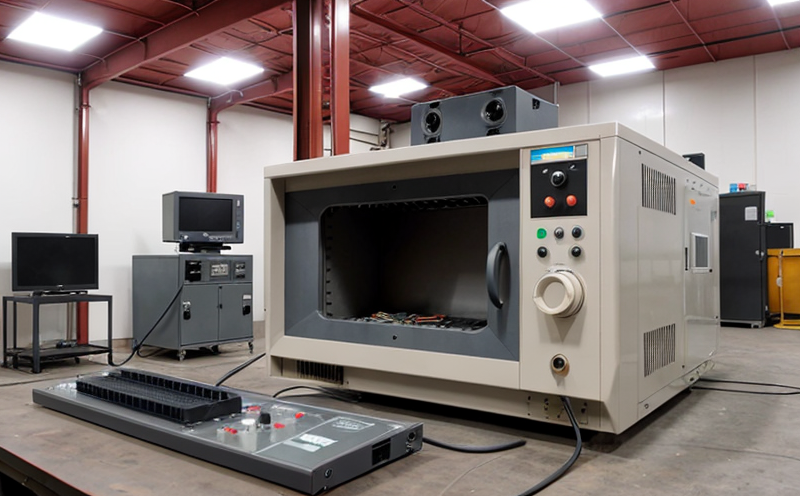IEC 61508 Functional Safety Testing for Industrial Control Systems
The International Electrotechnical Commission (IEC) standard IEC 61508 sets the framework for ensuring that safety-related systems meet their functional safety requirements. This standard is particularly crucial in industrial and commercial environments where control systems play a critical role in maintaining operations and safeguarding against potential hazards.
Incorporating IEC 61508 into your testing protocols ensures compliance with globally recognized best practices for functional safety, reducing the risk of system failures that could lead to catastrophic incidents. This service focuses on providing comprehensive testing solutions tailored specifically towards industrial control systems (ICS) within this framework.
Functional safety addresses three main aspects: design integrity, manufacturing quality assurance, and operational reliability under adverse conditions. By adhering strictly to IEC 61508 guidelines during product development, manufacturers can demonstrate their commitment to high standards of engineering practice and provide robust evidence of meeting international safety requirements.
The testing process itself involves multiple stages designed to rigorously assess various components of the control system including hardware, software, communication interfaces, and human-machine interaction elements. These tests ensure not only that each component operates correctly but also how they interact with one another when subjected to fault conditions or extreme operating environments.
A key feature of IEC 61508 testing is its emphasis on fault tolerance—a critical consideration given the potentially hazardous nature of industrial control systems. Fault-tolerant designs are those that continue functioning even if some parts fail, thereby maintaining overall system availability and integrity during failures.
Another important aspect of this service is the provision of detailed reports highlighting all findings from our rigorous tests conducted according to IEC 61508 standards. These comprehensive documents serve multiple purposes—they not only help clients understand their current state regarding functional safety but also provide valuable insights into areas needing improvement or additional focus.
| Use Case | Description |
|---|---|
| Automation Systems | Testing of automation systems used in manufacturing plants to ensure they operate safely even under abnormal conditions. |
| Safety Instrumented Systems (SIS) | Evaluation of SIS installed in chemical processing facilities for their ability to detect and respond appropriately to hazardous situations. |
| Process Control Systems | Assessment of process control systems employed in power generation plants for continuous safe operation despite possible malfunctions or external disturbances. |
| Transportation Systems | Verification of safety features integrated into transportation infrastructure such as railways and aviation for preventing accidents due to operational errors. |
Benefits
- Enhanced reliability of industrial control systems through thorough testing according to internationally recognized standards.
- Increased trust among stakeholders by demonstrating adherence to high safety standards.
- Reduced risk of catastrophic failures leading to personnel injuries or environmental damage.
- Improved reputation and market competitiveness due to enhanced product quality assurance processes.
International Acceptance and Recognition
- IEC 61508 is widely accepted by regulatory bodies around the world as a benchmark for functional safety in industrial applications.
- Mandated by many industries including automotive, aviation, and chemical processing to ensure compliance with local laws.
- A core component of ISO/TS29451-3 which provides supplementary guidelines for implementing IEC 61508 within the broader context of automotive safety.





